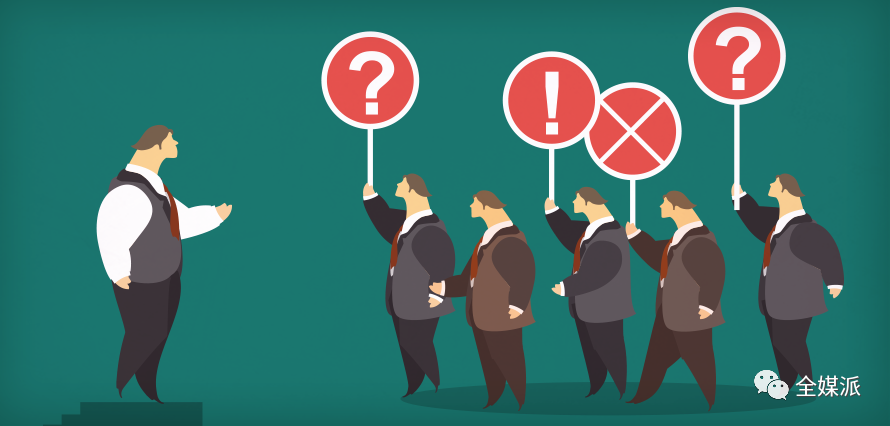Do not want to occupy public resources, I just bought a hot search within ten minutes.
Editor’s note: This article is from the micro-channel public number “all-media school” (ID: quanmeipai) , Author: Tencent Media.
In the entertainment circle, which never lacks topics, the languages that stars communicate to the outside world are rather uncreative. Today, I ’ll look back at the official propaganda bodies that brushed the screen—whether it ’s “Hello everyone, I ’ll give Let me introduce you, this is my girlfriend, or Fan Bingbing’s “We are still us, we are no longer us”, and replaced by a self-proclaimed person, it is very common copywriting.
Although this is not the age when everything is “no comment”, the stars who are always under the spotlight still follow the “traditional tradition of your circle” which is prudent. Restrictions on identity have led to an alternative “language infertility”, so some simple and easy-to-use words have been written into the “star self-cultivation” of the 21st century. They are regarded as guineas and become necessary for stars to respond to certain types of events. The only expression.

For example, today we want to focus on the sentence “don’t want to occupy public resources”. Searching for this keyword in the time interval of nearly one month, nearly 110,000 relevant information can be obtained only on the Weibo platform. Any negative topic, as long as you move out of “unintentional occupation of public resources”, can block many people’s mouths.
But paradoxically, what exactly do “public resources” in a star’s mouth mean? Few answers have been given. In this issue of All Media Group (ID: quanmeipai), we will drill this horn and discuss with you. What kind of resource is the “public resource” taken out by the stars as a shield?
Cross-border public resources
According to existing research, how to define a complete and reasonable definition of public resources has always been a topic of debate in academic circles. In a literal sense, the Oxford English Dictionary defines it from two perspectives: “public” and “resources”, that is, resources that are “jointly used or possessed and held or enjoyed by many people equally”. Obtained by anyone in the relevant community without permission from others.
Of course, this refers to public resources in a broad sense. As a professional concept that has emerged from the field of economics and has rapidly expanded to many disciplines including management, sociology, and journalism, publicThe common resource is actually born from the interpretation of public goods.

Samuelson proposed that public goods have a characteristic that everyone’s consumption of such goods will not lead to the reduction of other people’s consumption of the goods. On this basis, scholars including Buchanan and E. Ostrom have also refined from different angles. According to E. Ostrom, public resources are both functional in use or consumption, non-exclusive in the sense of occupation, and also competitive in use. The use of any group member will hinder others User use of the item. Chinese scholar Tang Bing proposed that public resources are non-exclusive natural resources with consumption but no consumption at the same time.
The Internet has given birth to a new type of public resource, namely network resources. For example, the non-exclusive nature of this resource means that when someone uses a social platform, it does not exclude others from using it; while competition means that although others can also share a social platform, but because Someone’s consumption increases the cost of use by others or reduces the quality of use by others.
So the public figure ’s use of the word “occupy” is very clever. Its purpose is not to share and use, but to occupy and use. This popular text form has now become the standard for crisis public relations of public figures. The subtext is: “Things related to me have affected the use of public resources by netizens, but this is not my intention, and I hope to take the initiative to minimize this effect.”

The effect of this saying is obvious to all. Recently, several controversial events, from the “Xiao Zhan Incident” hotly debated by the people, to Zhang Meng’s response to Zhang Meng, to the “Bing Qingyu Jie” that caused a spit in a variety show in these two days “In the end, they all offered a big move of” public resources. ”
Complex and rich network public resources
As a new form of public resources, the definition and subordination of network public resources are still blank. In addition to the lack of a clear conceptual definition, what specific elements are included in network public resources are also worthy of discussion.
At present, the number of network platforms, Internet access traffic, and network information services are all in the category of network public resources. These three resources are platforms, traffic, and content that are often mentioned. The “public resources” in the celebrity’s mouth are basically reflected in these three.
Take the Weibo platform as an example. This is the distribution center of the entertainment industry. The hot search function enables the huge network access traffic in the distribution center to focus on several hot events in a short time. Correspondingly, related network information resources with hot events as the core will be more diversified and dispersed on other websites on a large scale.

In addition to these subject resources, some object resources have gradually emerged, which includes a factor that is often talked about-attention resources.
The so-called attention resource originates from the “attention economy” proposed by psychologist Sangate in the 1990s. In 1997, Mitchegheber used the expression “attention resource” for the first time in his works. He pointed out that in the process of information dissemination, there is a scarce resource with important value flowing between networks at the same time. This scarce resource is attention. In addition, he also infers that with the development of the times and the influence of attention economy, the attention resources will become the core of the online media competition.
Mitchegheber’s judgment is being confirmed every day. In the context of the iterative development of the Internet, massive amounts of information have created a continuous focus on the audience, and the “10,000 people listen to one” of mass communication has been replaced by the “individual war” of group communication.
The distribution of information monopolized by passers and gatekeepers has gradually lost its long-term “reasonability”; the algorithm recommendation based on the audience-based selection makes the audience truly become the decision-maker for the first time in information dissemination: on the one hand, countless information Fragmentation divides the audience’s attention to the extreme. On the other hand, a small number of information that gets high attention tends to gather more potential audiences. In the Internet market competition that relies on traffic realization, a complete closed loop of “attention-traffic-resources-realization” is clearly visible.

A “tragedy” may happen at any time
In economics-related theories, public resources that exist in the natural world are non-exclusive in consumption but non-competitive in consumption. The public as a consumer, based on rationalism, often consumes public resources from the perspective of self-interest, and then gains benefits. The emergence of this situation will cause the degradation of public resources to a certain extent, making the “Pareto optimality” of resource distribution difficult to achieve, and then triggering the “tragedy of the commons” and “prisoner’s dilemma” and “collective Behavioral logic. ”
Public resource dilemmas in the three typical senses do not just happen in the real world. More and more phenomena show that public realms have long distinguished virtual reality, and prisoners also exist in both worlds.

If Weibo search is regarded as a public lawn, and the various active stakeholders are the herders above. Then the tragedy of the commons proposed by American scholar Garrett Harding has already been presented on the Internet platform:
Insufficient and significant information often receives more attention for some reason and occupies the hot search list, and the hot search list that was originally used as an objective information activity presentation platform has also become a capital race. Territory; based on the rationalist principle of maximizing self-interest, whether it is a celebrity, KOL or ordinary netizens, I will use the platform and channels to my utmost to produce more content and grab the limited attention resources ; Groups with common interests established under the group communication mode are more likely to show a more pronounced group polarization in cyberspace than reality, and then cause rational individuals to be involved in the “silent irrational spiral”, and eventually Consuming public resources.
But after all, the public resources on the Internet are limited. The spread of excessive pan-entertainment information will inevitably lead to the decline of other related information’s attention on the platform, thereby damaging the maximization of public resource benefits. From this point of view, the phrase “don’t want to occupy public resources” of the stars has great rationality.
